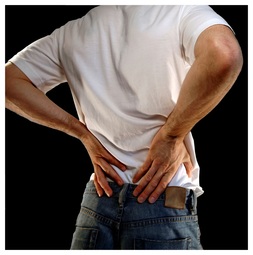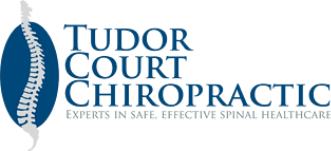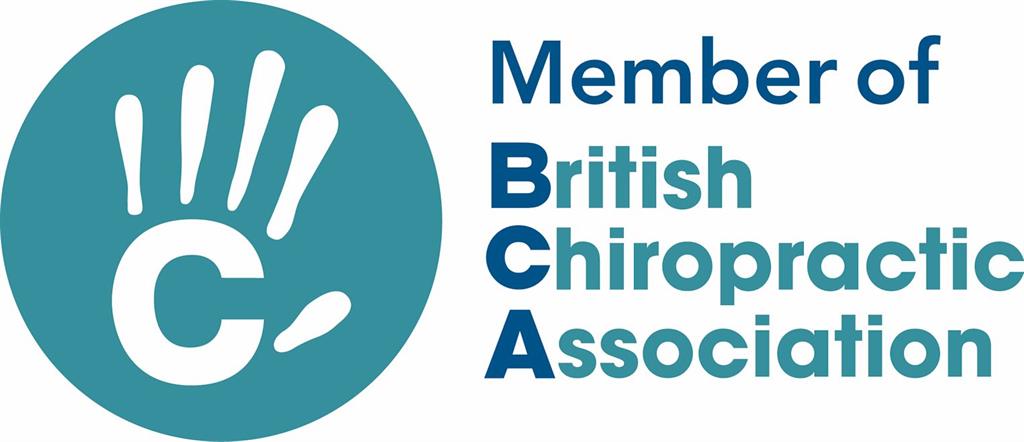
Low back pain. Those of us who have experienced it know that when the pain hits, it makes us miserable. Everyone seems to offer friendly advice on how to abstain from pain, but do they really know what they're talking about? Some commonly accepted recommendations may do you more harm than good.
1. Best rest is good for recovery: Recommendations have flipped over recent years between staying in bed or staying active and a 2010 Cochrane review suggested that the margin between these pieces of advice is closer than once thought.
However, overall, studies show that being active has an edge over bed rest and current clinical guidelines favour activity and exercise. One thing's for certain, prolonged bed rest can lead to muscle wasting and de-conditioning, which can make getting back on your feet a greater challenge.
2. Sit up straight to stop the pain: I always tell my patients to listen to their bodies and in certain back conditions, sitting up straight may be even more painful than bending because of added pressure on the lumbar spinal nerve roots. Conversely, a patient may get some relief lying on one side in the foetal position.
There hasn't been much scientific evidence directly linking posture to developing back pain, but it makes sense that posture can put pressure on different parts of your back. If you're always slumped to one side, some muscles may become weaker than others and, therefore, more susceptible to strain or damage. If spinal supporting muscles weaken, it can also affect the position of your spine, contributing to back pain.
3. Your diet won't affect you back: I've seen quite a few overweight patients lose their back pain when they lost weight. Of course, the converse also applies. Carrying extra weight, especially in the abdomen, can strain your back and increase lumbar lordosis, an excessive inward curvature of the spine. Weight gain also causes some pregnant women to develop low back pain. Obesity also speeds up lumbar disc degeneration that often occurs with aging.
A recent study showed that even adolescents who are overweight are susceptible to low back pain and disc degeneration and an elevated body mass index (BMI) was significantly associated with increased severity of disc degeneration.
4. Get the firmest mattress you can find: Several studies suggest that people who suffer from low back pain actually benefit more from a medium-firm mattress. Why? If a mattress is too firm, it won't support the body evenly and may cause discomfort at the heaviest points like hips and shoulders. If the mattress is too soft, a sleeper could sink into the bed and have a harder time moving, which could cause stiffness and pain in the morning.
Having a slightly softer mattress places less compression on your body and may grant you a better night's sleep.
5. You need a back operation: Unless your pain is unrelenting and no form of treatment seems to work, or you develop a serious neurological deficit, such as a foot drop, you shouldn't rush to surgery. Many common back problems, even those that cause severe pain, can be helped with conservative treatment.
Not everyone that undergoes surgery is happy with the end result. A 2009 survey of almost 1000 consumerreports.org subscribers who had undergone surgery for low back pain found only 60 percent said they were completely or very satisfied with the results of their operation. In comparison, 82 percent of the people who had hip or knee replacement surgery in a 2006 survey said they were completely or very satisfied with the results.
6. Painkillers are more effective than hands-on treatment: In a Consumer Reports Health Ratings Centre 2009 survey of more than 14,000 subscribers who experienced low back pain over the previous year but never had back surgery, hands-on treatments were rated very helpful by sufferers. Fifty-eight percent of survey respondents favored chiropractic treatments, while 48 percent liked massage and 46 percent preferred physiotherapy.
Of those patients who had taken prescription medications in the previous year, 40 percent said they were helped a lot by nonsteroidal anti-inflammatory drugs and 43 percent by muscle relaxants.
7. It matters how you lift: Well, yes and no. While the advice is sound and it's better to: bend at your knees, not at your waist; lift using your leg muscles; tighten your abdominal muscles; and hold the object close to your body, if you have a known back problem, like a herniated disc, it's best to avoid strenuous lifting entirely.
It's fairly common for me to see return patients who get into trouble because they continued to lift heavy weights at the gym, moved furniture, or shoveled snow.
8. Get a scan as soon as possible: Immediate or routine imaging of lumbar spines in patients with low back pain does not improve outcomes, in fact, it may make things worse for you. How? A CT scan increases your exposure to radiation, and a MRI scan may lead to unnecessary surgery. For example, lumbar imaging in America is growing at an alarming rate and some experts believe it correlates with a nearly three-fold increase in surgery rates over the past decade.
When should a scan be ordered? If you are experiencing fever, leg muscle weakness or wasting, a change in bowel or bladder function, have a history of cancer, or pain associated with a recent trauma.
Any questions, please send me an email.
Matt
1. Best rest is good for recovery: Recommendations have flipped over recent years between staying in bed or staying active and a 2010 Cochrane review suggested that the margin between these pieces of advice is closer than once thought.
However, overall, studies show that being active has an edge over bed rest and current clinical guidelines favour activity and exercise. One thing's for certain, prolonged bed rest can lead to muscle wasting and de-conditioning, which can make getting back on your feet a greater challenge.
2. Sit up straight to stop the pain: I always tell my patients to listen to their bodies and in certain back conditions, sitting up straight may be even more painful than bending because of added pressure on the lumbar spinal nerve roots. Conversely, a patient may get some relief lying on one side in the foetal position.
There hasn't been much scientific evidence directly linking posture to developing back pain, but it makes sense that posture can put pressure on different parts of your back. If you're always slumped to one side, some muscles may become weaker than others and, therefore, more susceptible to strain or damage. If spinal supporting muscles weaken, it can also affect the position of your spine, contributing to back pain.
3. Your diet won't affect you back: I've seen quite a few overweight patients lose their back pain when they lost weight. Of course, the converse also applies. Carrying extra weight, especially in the abdomen, can strain your back and increase lumbar lordosis, an excessive inward curvature of the spine. Weight gain also causes some pregnant women to develop low back pain. Obesity also speeds up lumbar disc degeneration that often occurs with aging.
A recent study showed that even adolescents who are overweight are susceptible to low back pain and disc degeneration and an elevated body mass index (BMI) was significantly associated with increased severity of disc degeneration.
4. Get the firmest mattress you can find: Several studies suggest that people who suffer from low back pain actually benefit more from a medium-firm mattress. Why? If a mattress is too firm, it won't support the body evenly and may cause discomfort at the heaviest points like hips and shoulders. If the mattress is too soft, a sleeper could sink into the bed and have a harder time moving, which could cause stiffness and pain in the morning.
Having a slightly softer mattress places less compression on your body and may grant you a better night's sleep.
5. You need a back operation: Unless your pain is unrelenting and no form of treatment seems to work, or you develop a serious neurological deficit, such as a foot drop, you shouldn't rush to surgery. Many common back problems, even those that cause severe pain, can be helped with conservative treatment.
Not everyone that undergoes surgery is happy with the end result. A 2009 survey of almost 1000 consumerreports.org subscribers who had undergone surgery for low back pain found only 60 percent said they were completely or very satisfied with the results of their operation. In comparison, 82 percent of the people who had hip or knee replacement surgery in a 2006 survey said they were completely or very satisfied with the results.
6. Painkillers are more effective than hands-on treatment: In a Consumer Reports Health Ratings Centre 2009 survey of more than 14,000 subscribers who experienced low back pain over the previous year but never had back surgery, hands-on treatments were rated very helpful by sufferers. Fifty-eight percent of survey respondents favored chiropractic treatments, while 48 percent liked massage and 46 percent preferred physiotherapy.
Of those patients who had taken prescription medications in the previous year, 40 percent said they were helped a lot by nonsteroidal anti-inflammatory drugs and 43 percent by muscle relaxants.
7. It matters how you lift: Well, yes and no. While the advice is sound and it's better to: bend at your knees, not at your waist; lift using your leg muscles; tighten your abdominal muscles; and hold the object close to your body, if you have a known back problem, like a herniated disc, it's best to avoid strenuous lifting entirely.
It's fairly common for me to see return patients who get into trouble because they continued to lift heavy weights at the gym, moved furniture, or shoveled snow.
8. Get a scan as soon as possible: Immediate or routine imaging of lumbar spines in patients with low back pain does not improve outcomes, in fact, it may make things worse for you. How? A CT scan increases your exposure to radiation, and a MRI scan may lead to unnecessary surgery. For example, lumbar imaging in America is growing at an alarming rate and some experts believe it correlates with a nearly three-fold increase in surgery rates over the past decade.
When should a scan be ordered? If you are experiencing fever, leg muscle weakness or wasting, a change in bowel or bladder function, have a history of cancer, or pain associated with a recent trauma.
Any questions, please send me an email.
Matt


 RSS Feed
RSS Feed













